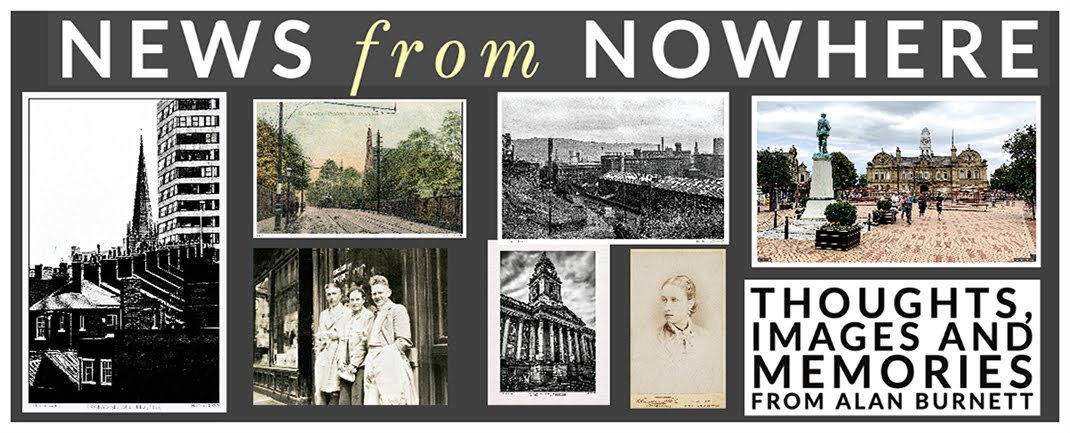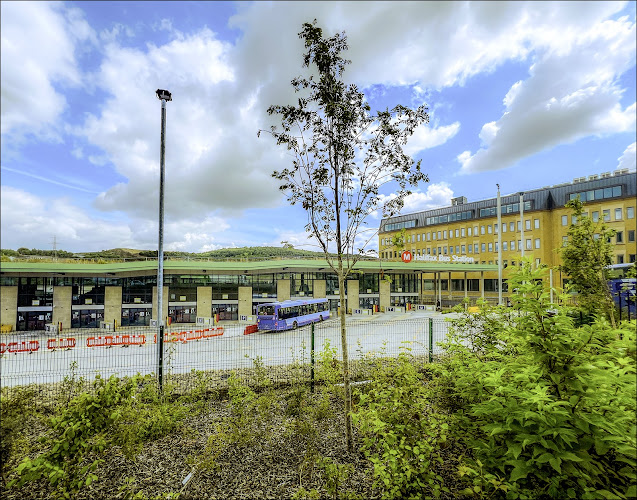THE LOST PUBS OF BRIGHOUSE
At one time or another there have been over 100 pubs, inns, beerhouses and taverns in the streets around Brighouse and Rastrick. Today, only a handful are left. Before time is called on too many more, I decided to go on a historical pub-crawl in search of the lost pubs of Brighouse.
No 5. The Joiners Arms, Hove Edge, Brighouse
What's in a name? As far as the history of local pubs is concerned, the answer is all too often a story. Take, for example, the Joiners Arms (my apologies to the Apostrophe Protection Society but there was little call for such frippery amongst nineteenth century signwriters). If you live in the Brighouse area and you are not familiar with the Joiners Arms, don't worry; you would have to be of a fair vintage to have a working knowledge of it as it closed down in 1932. The building still exists, however, huddled up close to the Dusty Miller on the Halifax Road in Hove Edge, a few miles to the north of Brighouse.
These days, Hove Edge is a bit of an afterthought, but there were times when it was one of the four quarters that made up Hipperholme township : along with Hipperholme itself, Norwood Green, and little baby Brighouse. Romans buried coins in Hove Edge (or Hoofedge as they fondly called it), quarrymen quarried stone there, and highwaymen on black horses hid there - but that is another name, another pub and another story. So let us return to our joiner.

According to the 1841 census there was a joiner called Jonas Bell living in Hove Edge. Living in the same cottage was a younger man, also a joiner, called Joseph Crowther. Jonas was 50, which was a good age back in the 1840s; an age when the body begins to slow down, an age when heaving a plank of wood becomes more and more of a challenge. Old Jonas needed to diversify and, luckily for him, this need coincided with that great process of liberalisation of the licensing laws which meant that almost anyone could open up a beerhouse anywhere. Hove Edge was full of so many thirsty stone quarriers that on a cold night they couldn't all fit into the Dusty Miller (or the Old Pond, or the Black Horse, or the Broad Oak), so Jonas became a beerseller. By the time of the 1851 census, Jonas is listed as the publican of the appropriately named "Joiners Arms", and Joseph Crowther has bought the cottage next door and got married. Pulling pints was obviously less stressful than pulling planks, and Jonas was still listed as the Publican of the Joiners Arms in 1861 by which time he was over 70 years old and his neighbours' daughter, Lizzie Crowther, had moved in to help him.

But things never stay the same, and ten years later Jonas the Joiner is gone - transported to heaven in a fine oak coffin lined with burr walnut one hopes - and so is his old pal and neighbour, Joseph Crowther. But the connection is not broken, because Joseph's widow, Mary Crowther, has moved in and taken over the running of the pub. Keeping order amongst a room full of heavy drinkers could be quite a challenge in the rough and tumble of nineteenth century working class life, and poor Mary discovered this to her cost in 1875. To the cost of £1 8s 6d to be precise, the amount she was fined at the West Riding Court in Halifax for permitting drunkenness in her beerhouse.

The pub lived on into the twentieth century, but when Mary Crowther left in the 1880s, all connections to the original joiners were lost. And in 1932, the pub itself was lost as it ceased trading. For a time, the building got a new lease of life as the village post office, but the decline in local post offices didn't lag too far behind the decline in local pubs, and that also closed down. Now the building is a private house: neatly presented, cheerfully painted, and with a canopy of solar panels nailed to the roof. One can't help wondering whether it was a joiner who fitted them.






















